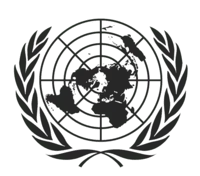
About Forgotten Wars
The Ukrainian war is not the only forgotten war. There are thousands of people all around the world living in conflicts that used to be discussed every day, but hardly anybody remembers them today. The Ukrainian Nazar knows it well. Since 2014, he had worked as a fixer – he accompanied journalists to the areas where the biggest fights went on. However, media’s interest has faded soon. In this text, Nazar describes what it meant to him.
The way to oblivion
It is difficult for people today to stay focused on something for a long time. We are inundated with millions of breaking news every second. What everybody talked about just an hour ago is suddenly forgotten and no longer topical. As far as fashion, music, marketing is concerned, it is ok; we live in a dynamic world, as the saying goes.
But when it happens to lives of real people – then it is a catastrophe.
The war that Russia started in my country in 2014, was a shock for all Ukrainians and for me personally. The war in the Ukraine was the news No. 1 all around the world. Nobody could imagine that such a brutal medieval seizure of a weakened state could happen in the 21st century in Europe.
The whole developed world condemned this war and tried to help us. European journalists considered their duty to get to the epicentre of events in order to share the events with their audience and readers. I know it because as a fixer, in the first years of war I guided dozens of groups from various European mass media into the war zone and to the occupied territories.
I could feel that the whole world was with us. I could see that the world cared. It felt good to feel such support. At that time I realized that my role was to help journalists to get to the centre of events for them to see everything with their own eyes, to hear all the sides of the conflict, to form their independent point of view and get it over to the world.
I was happy that it was an objective view. It seemed to me every day that we were close to the moment when the international pressure would break the course of things and the enemy would withdraw.
But something else happened. The armed conflict developed into a conflict solved in politicians’ offices. As soon as it happened, the international interest disappeared. As soon as hundreds and thousands of people stopped dying, they forgot about the war. But the people were still dying. Dozens of people and almost every day. Not speaking about big territories that suddenly found themselves in a tense vacuum between the two fires and they expect a change for worse every day.
In the front zone, I was at different places and I met many different people. Their stories always impressed me with their dramatic character. The children who receive no education because of the war and live in constant stress. An old woman who has no firewood or coal in severe winters of the Ukrainian steppes. Thousands who lost their dearest ones. Their suffering does not end when they are not in newspapers.
There are more forgotten wars in the world. And they often look alike over the course of time: initially, journalists from all over the world set off to their epicentres and human tragedies feature front pages of newspapers. As soon as another crisis breaks out, all crews move there.
And soon nobody remembers the war that the whole world used to hear about every day.


IRIN
The non-profit organization IRIN, associating journalists who inform from places of humanitarian catastrophes, has created a clearly arranged map of more than 40 ongoing war conflicts. It gives basic information for every conflict, such as number of casualties, its duration and the actual development.

